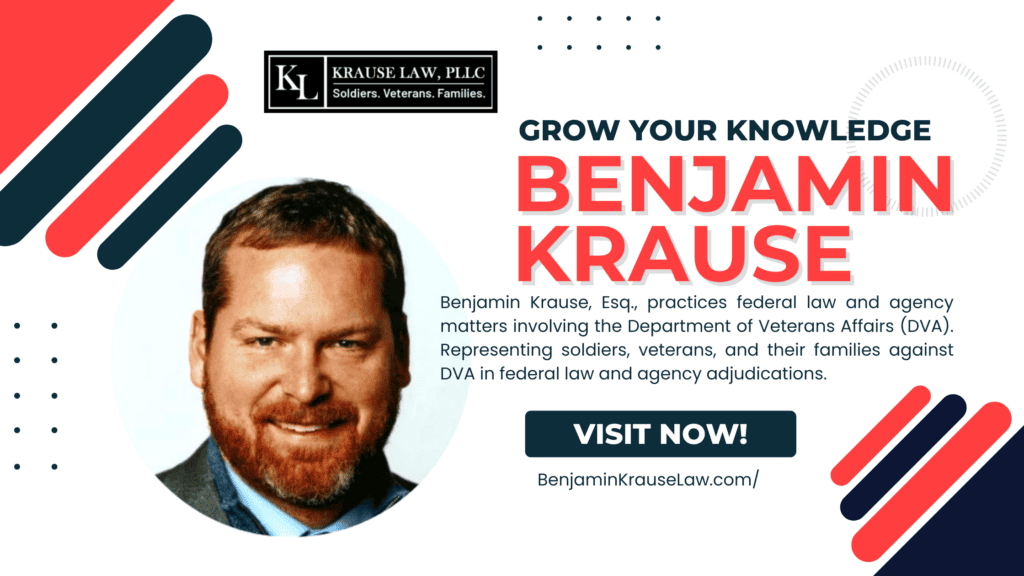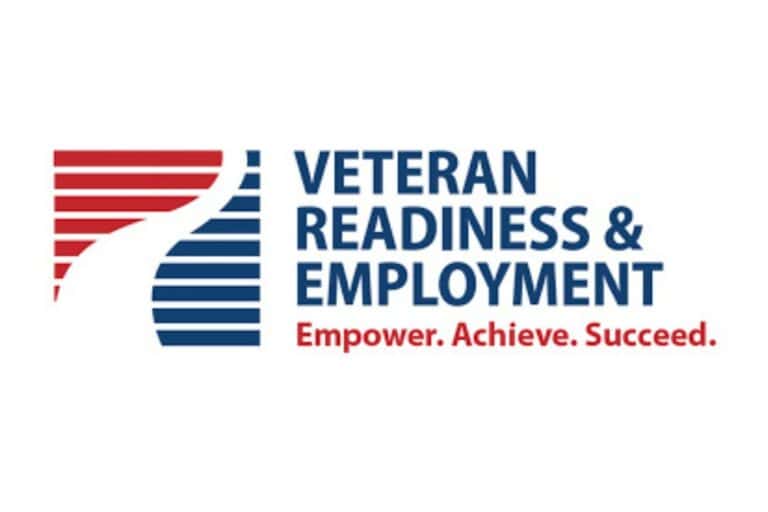Best Way to Get FREE Medical School for Disabled Veterans
Disabled veterans make great physicians, especially when helping other veterans, and the opportunity gets even better with free medical school through Veteran Readiness and Employment (VR&E) through residency.
Let’s face it. Pursuing a medical degree can be a major financial challenge, especially for disabled veterans. School is expensive and grueling. Funding it on top of other obligations like raising a family, being married, or paying child support can seem impossibly challenging.
But what if a wealthy uncle, let’s call him Uncle Sam, offers to pay?
That is the situation some fortunate veterans with disabilities find themselves in when successfully navigating the application and approval process through VR&E, a unique program administered by the Department of Veterans Affairs that funds training for qualified veterans, even at private colleges and universities.
While many other Americans will come out of medical school with a mountain of student loan debt, up to $300,000 or more, fortunate disabled veterans, and veterans otherwise eligible through the GI Bill, will fare much better – – with those who qualify for VR&E sponsorship of medical school coming out on top.
Why does Veteran Readiness and Employment do that?
Most veterans who use VR&E with the vocational goal of physician are able to receive the training for free. That means medical school tuition is covered. These veterans are also able to receive a subsistence payment monthly up to the allotment of the GI Bill without depleting their GI Bill so long as they are still entitled to GI Bill benefits.
That means these veterans are able to also save back their GI Bill to use it later for whatever approvable purpose they choose. Meaning, they can complete another graduate degree, continuing education, or change fields later in life – – like getting a certificate to become a master gardener, cabinetmaker, or gun smith.
The options are only as limited as is your ability to maximize what you have.
But is it easy? Heck no. Gaining approval of this vocational goal is very difficult not just because of the low odds of gaining approval for medical school admission. It is also difficult because many VR&E officials seem to hate approving veterans for expensive goals like physician.
This article highlights the VA’s critical role in managing benefits and ensuring veterans access necessary resources.

Understanding the GI Bill
Disabled veterans medical school funding: The GI Bill is a valuable resource for veterans. It offers significant financial support for education and housing needs. This program helps veterans pursue education, build skills, and achieve career goals. It alleviates many financial burdens associated with schooling and living expenses.
Key Benefits of the GI Bill for Disabled Veterans
- The GI Bill: May assist with tuition in certain situations.
- Housing Allowance: Veterans can receive a monthly housing allowance while enrolled in school.
The GI Bill is great, but it is limited to only 36 months. Meanwhile, VR&E can be used for well over 48 months for certain qualified veterans with a Serious Employment Handicap.
Many disabled veterans who are approved for VR&E benefits are able to save back their GI Bill for later training after completing medical school and residency training while receiving the higher subsistence amount of the GI Bill. Once training is over, these same veterans could be debt free and able to use the GI Bill later in life.
Veterans who are only found to have an Employment Handicap can save back their GI Bill to receive subsistence during residency training after using up 48 months of VR&E benefits. That means on top of the residency training salary you receive, these veterans can also receive the monthly subsistence payment from the GI Bill.
In the Bay Area of California, this payment may be up to $5,000 per month above what is paid in the salary.
Veteran Readiness & Employment (VR&E)
The VR&E program aids veterans with service-connected disabilities in achieving employment by offering resources tailored to their needs. It helps with job preparation, securing work, and career maintenance. It covers tuition, fees, and a living stipend, helping veterans achieve their education and career goals
Navigating the VR&E Process
- Entitlement Assessment: Veterans must undergo an entitlement assessment to determine if they qualify for VR&E benefits, and, if entitled, they need to be found approved for the vocational goal through the vocational exploration process with their VR&E counselor. This process can be lengthy and complex, often leading to frustration.
- Application Submission: After deciding VR&E may be a good fit, veterans must submit an application. Once deemed eligible by VR&E, an appointment will get set up for the entitlement assessment.
- Critical Review of VA Processes: Many veterans report challenges with the VA’s application process, including delays and denials. It’s crucial to be persistent and seek assistance from veteran and disabled veteran service organizations if issues arise.
Common Pitfalls and How to Avoid Them
While the GI Bill and VR&E offer substantial support, navigating the VA system can be fraught with challenges. Here are some common pitfalls that disabled veterans might encounter:
- Misunderstanding Eligibility: Many veterans are unaware of the specific eligibility criteria for both the GI Bill and VR&E. It’s vital to thoroughly research and understand these requirements.
- Application Denials: Veterans rated at 100% disability may face denials when applying for VR&E benefits. Maintaining GI Bill entitlement during this process is essential and seeking guidance if denied, including legal advice from a VA-accredited attorney.
- Lack of Support: The VA can be overwhelming, and many veterans feel lost in the system. Engaging with veteran advocacy groups can provide the necessary support and resources.
Conclusion
Disabled veterans can access resources like the GI Bill and VR&E benefits to fund their medical education and advance their careers. While these benefits offer many opportunities, navigating the complex VA systems can pose significant challenges for veterans. Understanding the intricacies of the process is essential for making the most of these valuable programs.
To effectively use these benefits, disabled veterans must stay informed, prepare well, and address any hurdles proactively. This means understanding eligibility requirements, familiarizing themselves with application processes, and being aware of potential pitfalls. By preparing in advance, veterans can better overcome obstacles and secure the educational funding they need.
Maximizing these benefits requires careful planning and determined effort, but the rewards can be significant. With the right approach, veterans can transform these opportunities into a stepping stone toward achieving their professional goals. For aspiring medical professionals, this is a way to fund their education and pursue a fulfilling healthcare career. By utilizing available resources and staying focused, disabled veterans can achieve their goals and contribute meaningfully to the medical community.
Learn more about Benjamin’s legal practice helping veterans wrongly denied VR&E benefits: www.benjaminkrauselaw.com
Join over 40,000 veterans in our Facebook Group: Disabled Veterans – Chapter 31 Voc Rehab.
Tune in and empower your educational journey today!



Psychologists are the biggest pseudo intellectual confidence men in our society today. It’s not science, only philosophy, and too many of their middle class friends validate their bullshit so it seems legitimate. It’s not. And they take it so far that sometimes intersubjective agreement is completely lost and they lose it or you walk out. The government should know better by now that one on one meetings with those people isn’t the way to go.
Tell me how the hell sending someone with spinal disk herniations to physical therapy over and over again when only surgery would correct the problem isn’t malpractice and abuse. Sending someone around in circles instead of telling someone they just won’t pay for it. Tell me how the fuck that’s not a serious violation of human rights. I understand they can’t be successfully sued over the denial of care, but tell me how they can’t be sued for malpractice and rights violations for doing something like that. The Department of Veterans Affairs is a corrupt organization as well. Just imagine the moral depravity that system creates as doctors feel they have to protect the dishonest system and their paycheck. Perfectly good people before they became exposed to that level of systemic fraud.
Just remember if you’re unfortunate enough, or should I say unwise enough to land yourself in front of a psychologist there…they don’t always view people through humane lenses. Study up on psychology and see if that’s something that you would like someone to apply to you. And remember it’s philosophy and not science…so if you’re insulted you should understand that and stand up for yourselves. It’s their philosophy and how it’s impacted you that’s the problem in the relationship and not you. At the very least you should walk out the door if they try to play doctor, because a psychologist or counselor isn’t a doctor. They’re simply philosophers who are going to try to put you in some box based on philosophy and suggest their perception or who they are has nothing to do with it. I assure you it does. Leave if you are insulted. That’s the number one thing I wished someone had told me when I got out of the service and went to the VA. Don’t hold those people in high esteem just because they have a degree in philosophy which is what psychology is. Being offensive isn’t treatment… it’s abuse…no matter under what guise it’s being done.
Medical SCHOOL? How about medical care for service connected musculoskeletal conditions. How the hell can people do anything when they’re being sent to physical therapy for conditions like spinal disk herniations? On top of that being inadequate care, that’s also malpractice. They were also trying to diagnose people who had schizophrenia with personality disorders just to get rid of them only ten years ago. Where is justice for that and much more?